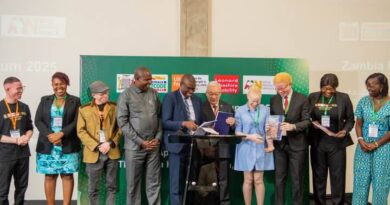JCTR Report Reveals Concerns Over Lack of Transparency, Accountability, and Community Participation in CDF Implementation in Zambia
In May 2023, the Jesuit Centre for Theological Reflection (JCTR) conducted a monitoring exercise of the enhanced Constituency Development Fund (CDF) in 51 wards across four constituencies in Zambia. The focus of the monitoring was on transparency, accountability, and community participation in the implementation of the CDF.
The findings from the monitoring exercise revealed significant concerns regarding the transparency of the CDF implementation. A majority of community members, 59%, expressed the view that the CDF lacked fairness and transparency. The primary reason cited for this perception was the influence of political party affiliation on project selection and approval. Communities believed that those responsible for managing the CDF were selective in choosing beneficiaries.
Additionally, there were low levels of community participation in the selection, approval, and monitoring of community projects. Furthermore, there were issues related to secrecy in contract awarding processes, with the majority of community members and Ward Development Committees (WDCs) not attending contract awarding ceremonies, which raised concerns about compliance with the Public Procurement Act.
The concept of accountability in the CDF implementation process also faced challenges. One significant issue was the lack of feedback provided to the community on rejected project proposals, a requirement under the 2022 CDF guidelines.
Moreover, WDCs encountered difficulties in monitoring community projects due to a lack of financial, administrative, and capacity support. Both local authorities and WDCs were found to be deficient in producing and sharing monitoring reports with community members. The perception among the community was that CDF projects were being imposed on them, rather than allowing them to choose the projects they needed.
Community participation in the CDF implementation process was hindered by various factors. Lack of financial and administrative support for WDCs, who operate voluntarily, made it challenging for them to mobilize community members for CDF meetings. Moreover, there were low awareness levels among community members about the CDF processes and a lack of understanding about the difference between loans and grants.
Political influence in CDF implementation, with politicians using it to fulfill campaign promises, also discouraged community members from participating. Additionally, inadequate information sharing on CDF processes and decisions related to CDF projects contributed to the low participation of community members in project selection.
To address these challenges and enhance transparency, accountability, and community participation in CDF implementation, JCTR proposed several recommendations. These included building synergies among stakeholders for social audits, accountability, and monitoring project implementation. Local authorities were urged to disseminate information and decisions on CDF progress regularly and develop simplified reports and feedback mechanisms for rejected proposals. Civil society organizations (CSOs) were called upon to enhance community members’ capacity in social accountability, proposal development, and financial literacy.
Providing financial and administrative support to WDCs, creating monitoring templates, and involving WDCs in contract awarding ceremonies were also suggested measures. Moreover, JCTR proposed revisions to relevant acts and the development of databases for tracking beneficiaries to improve CDF effectiveness and reduce political influence on the fund’s utilization.



